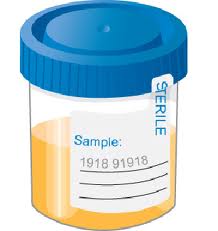Some fairly big news that has nothing to do with hurricanes, the GOP convention, or the Voting Rights Act.
Paul Becker, the director of Harris County’s probation department, resigned Wednesday in the wake of allegations the department mismanaged thousands of drug tests used to decide the fates of probationers and suspects out on bail while awaiting trial.
State District Judge Denise Collins called for Becker’s resignation Monday after listening to hours of testimony about the troubled department during a probation revocation hearing.
Some of the allegations included testimony that false positive results from drug tests, which were reported to judges, had sent probationers to jail.
The Chron has several related stories that give the background on this. I’m going to leave the analysis to Grits, who notes that this isn’t some new thing.
Back in 2005, Grits reported based on a consultant’s evaluation that Harris County had been told that “Urinalysis requirements in particular, while popular among prosecutors and judges, take up a huge amount of staff time and cause delays throughout the system.” The consultant, Justice Management Institute, specifically recommended that “The courts should seek to develop cost-effective common policies concerning when drug testing should be ordered,” but that never happened. So judges knew the department was overloaded by too many drug testing orders but willfully ignored the problem. That’s not Mr. Becker’s fault.
In some ways I feel sorry for Becker, who was in a damned if you do, damned if you don’t situation. Probation departments are underfunded, relying mainly on probationer fees and a relatively small stipend from the state. Plus, in Harris they’ve been asked to provide urinalysis and supervision not just for people on probation but often for defendants out on bail pretrial. The system has grown so large and unwieldy that, to me, these types of errors are regrettable but unsurprising, not that that does wrongly jailed defendants any good. Mr. Becker may have fallen on his sword, but by no means are he and his staff the only ones to blame.
This episode also reminds us that people who’ve spent decades in prison on false rape or murder convictions before being freed by DNA aren’t the only or even the most common category of innocent defendants jailed based on false accusations. These more workaday, low-level cases have just as much room for mistakes, but are also much more easily swept under the rug. Most defendants are indigent and can’t afford to mount the type of full-court press that resulted in Judge Collins’ findings this week. It’s a great mitzvah that attorney Lisa Andrews did so on behalf of her client, but if defense attorneys in Harris County had been aggressively confronting false forensic evidence against their clients on an ongoing basis, maybe the problems would have been identified and rectified long ago.
I don’t suppose I have to add that this is yet another contributor to jail overcrowding? If we want to have such an expansive drug-testing program as part of our probationary system, we need to be willing to pay for a system that can handle the demand. And if we don’t want to pay that much, we need to scale the system back to something we can afford. Not a hard concept, and I agree with Grits that it’s not really the program director’s fault for being dealt a lousy hand. It’s up to us to decide what we want.

